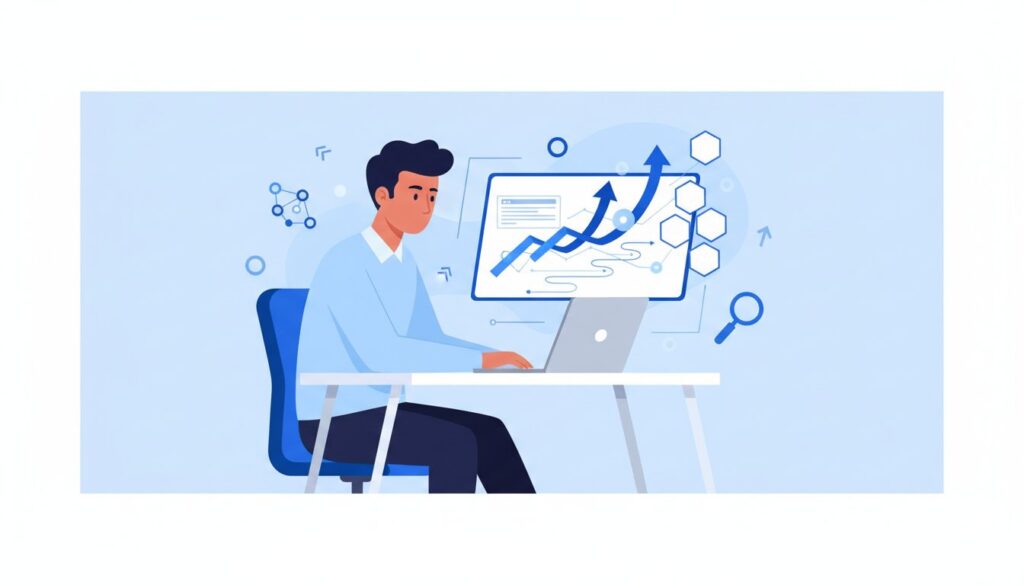Welcome to those who explore the digital world. Today, we’re going to take a tour through the complex world of canonicalization and how it affects Search Engine Optimisation (SEO). Canonicalization will be thoroughly explained in this detailed blog, along with its importance, advantages, and effects on how search engines read and rank what you post. Enrol yourself in Digital marketing training in Ahmedabad and build your career.
Understanding Canonicalization
Canonicalization is the process of selecting the preferred version of a webpage when multiple variations might confuse search engines. This is particularly crucial for websites with similar or identical content on different URLs.
The Impact on SEO
Combining Page Authority
Imagine a group of excellent musicians performing the same piece on various stages. By uniting them on a single platform, canonicalization strengthens their combined influence. In the same way, you may combine the SEO value of different versions of a page by identifying a canonical URL, which enables search engines to focus their ranking analysis on a single, reliable source. The overall page authority is increased through this combination, which improves search engine results.
Fixing Issues with Duplicate Content
Copying content leads to confusion, much like a note of discord in a symphony. By directing search engines to the preferred version, canonicalization serves as a harmonizer and fixes duplicate content problems. This not only avoids the possibility of fines for content that is identical or strikingly similar, but it also guarantees that the selected version gets the credit it deserves in search results.
Improving the User Experience
SEO aims to create a pleasant user experience in addition to satisfying search engines. Imagine going to a concert where the same music is performed together in various ways. Sounds complicated, doesn’t it? Canonicalization presents a unified, consistent version of the content that helps in providing a seamless user experience. Users find what they’re looking for quickly and easily, which promotes engagement and trust.
Maximising Crawl Spending
Every website on the huge internet is given a crawl budget by search engines. The frequency and depth to which search engine bots index and crawl your content is determined by this budget. By directing bots to the preferable version of a website and avoiding needless crawls of duplicate or identical material, canonicalization maximises this budget. By making effective use of the crawl budget, search engines can concentrate on finding and indexing fresh, worthwhile content.
Navigating Pagination Challenges
For websites with paginated content, such as category pages or article archives, canonicalization is akin to orchestrating a well-organised concert series. By implementing canonical tags on paginated pages, you guide search engines to the main, consolidated version, preventing potential dilution of SEO value across multiple pages. This ensures that the entire series contributes to the website’s overall authority.
Best Practices for Canonicalization
Canonicalization, when executed strategically, can be a powerful tool in your SEO orchestra. Here are some best practices to ensure you’re playing in harmony:
Select Your Favourite Format
Select a chosen URL format (http:// or https://, www or non-www) and use it consistently throughout your website. This keeps things clear and guarantees that search engines will find the selected version.
Use Absolute Links
Avoid using relative URLs when implementing canonical tags; instead, use absolute URLs. Absolute URLs prevent potential misunderstandings by sending search engines an unambiguous signal.
Audit Canonical Tags Frequently
Your website’s content structure changes as it does. To ensure that canonical tags reflect the most recent and relevant versions of your content, audit and update them regularly. By doing this, search engines are guaranteed to be redirected to the most recent, reliable source.
Handle Query Parameters Effectively
Set up canonical tags properly to handle these variants for dynamic URLs that contain query parameters. Despite the presence of parameters, this guarantees that search engines understand the canonical version.
Use Self-Referential Canonicals
Each page should have a canonical tag that points to its URL. Even if the page is seen in isolation, this approach promotes the preferred version.
Conclusion
Canonicalization functions as a conductor in the complex world of SEO, arranging content into a beautiful symphony. Canonicalization improves user experience, eliminates duplicate material, maximises crawl budgets, manages pagination difficulties, and unifies authority by directing search engines to the appropriate versions of your pages.
Canonicalization is a reliable partner to have as you start your SEO journey, helping you to create a seamless, user-friendly, and search engine-optimised digital experience. Like a perfectly performed symphony. Join SEO courses in Ahmedabad and learn more about SEO and how you can use your skills to grow your career.




![Best Career Options After 12th Science [2026]: The Ultimate Guide](https://upmark.in/wp-content/uploads/2025/12/Best-Career-Options-After-12th-Science-2025-The-Ultimate-Guide-Hero-Image-32-1024x585.jpg)
